Social Security contribution reaches a new high in June, with several days of the month exceeding 21.9 million employed people
News - 2025.7.2
Employment remains visibly buoyant in June. The number of Social Security contributors exceeded 21.6 million employed for the first time in a month of June (21,611,328), discounting seasonality and the calendar effect.
This represents an increase of 40,399 contributors compared to the previous month (a higher rate than in the previous months), and 461,409 more employed people in the last year (+2.2%).
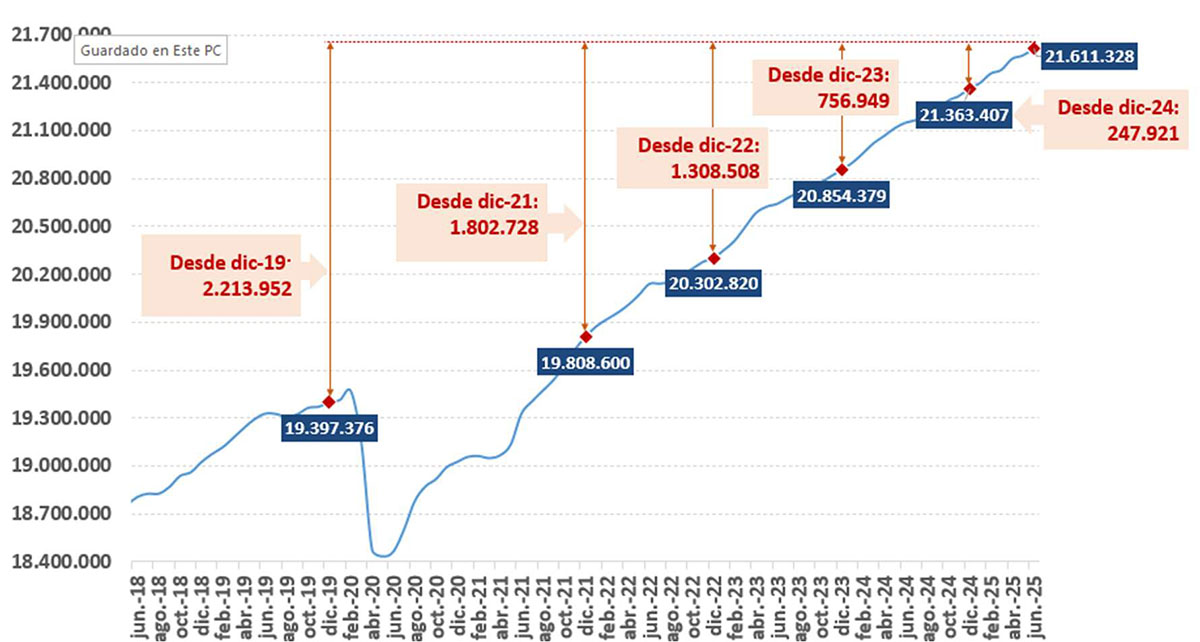
The average contribution figure (original series) is well above 21.8 million (21,861,095), an unprecedented figure, and is approaching 21.9 million after recording 76,720 more employed people than in May (+0.35%), a higher increase than in previous years in that month. The performance from April to June (+503,449) was better than in 2024 and 2023, and remains above the average between 2017 and 2019, which were strong pre-pandemic years.
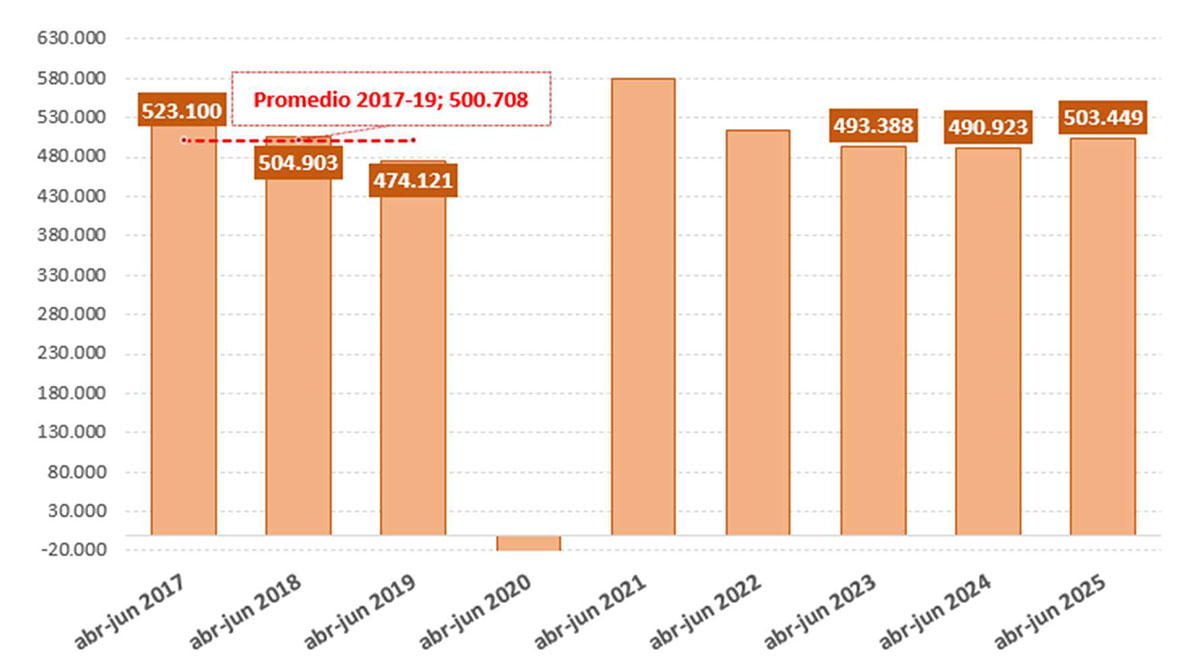
Employment also marks a new all-time high, with the daily series above 21.9 million employed for the first time. This figure was exceeded between 16 and 19 June.
"It is just over a year since we reached 21 million contributors, and we are now close to 22 million. Moreover, it is the high value-added sectors that are performing best, which is undoubtedly positive. It is also higher quality and more stable employment, the contribution bases are improving, and nine out of ten of those in employment have permanent contracts", said the Minister for Inclusion, Social Security and Migration, Elma Saiz.
Women and youth
The month of June also saw a new all-time high of 10,329,106 women contributors to the Social Security system. "More women are working in Spain today than ever before. We have to keep working to close the gender gap in employment participation, while the data tell us month after month that we are on the right track".
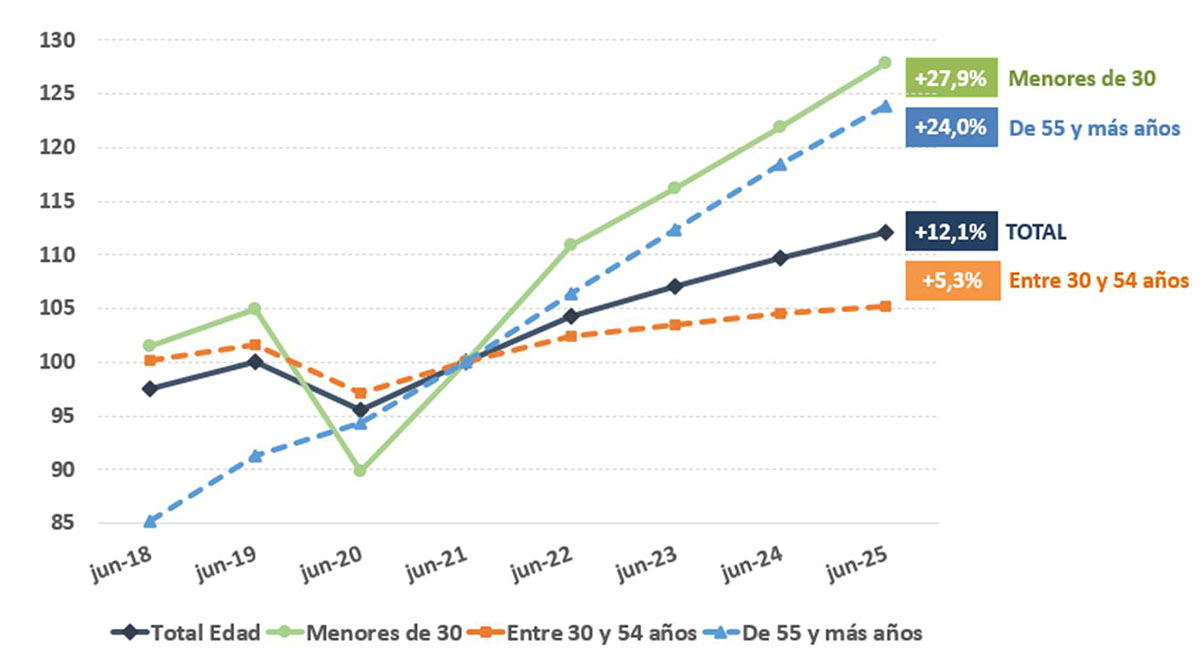
Employment among the under-30s and the over-55s is especially growing since the labour reform. In fact, their growth of 27.9% and 24%, respectively, is much higher than the average, which grew by 12.1%.
In the month of June, most of the sectors of the General Regime gained contributors in monthly terms, with special intensity in Agriculture, Livestock, Hunting, Forestry and Fishing (+2.8%) for seasonal reasons. In year-on-year terms, Transport and Warehousing (7.2%) and Arts, Entertainment and Recreation (4.8%) grew the most, followed by Professional, Scientific and Technical Activities (3.8%) and Education (3.5%).
The number of self-employed workers also continues to beat the highest figures on record, at above 3.4 million (RETA and SETA), for a total of 3,421,659 self-employed workers, having added 35,227 workers since June 2024 (+1%). In addition, 67% of them have entered highly productive sectors.
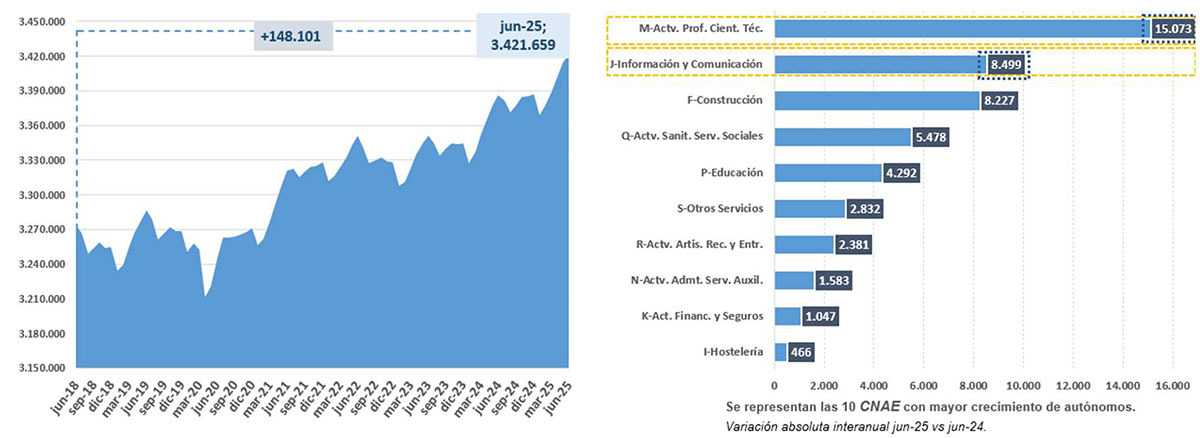
In the last year, the number of self-employed workers in Information and Communications and Professional, Scientific and Technical Activities has increased by 10.2% and 4.5%, respectively. They add up to more than 23,572 new self-employed, which is more than two thirds of the increase in self-employed workers in this period. Real Estate Activities (6%) and Education (4.2%) also rose above the average.
Higher employment growth than other major European economies
As in previous months, job creation in Spain (+9.4%) notably exceeded that of the major European countries (Italy, +5.9%; France, +1.8%; Germany, +1.6%), calculated from the end of 2021, prior to the entry into force of the labour reform.
The good performance of employment, both in terms of quantity and quality, is reflected in an increase in contribution income, which grew by 7.1% in the first five months of the year. This increase is based on employment growth, improved wages, and higher average contribution bases, closely related to the shift in the composition towards higher wage jobs in higher value-added sectors.
In terms of the quality of employment since the start of the labour reform, there are almost 4.2 million more workers with permanent contracts, an increase of 40.8% since June 2021.
At present, there are almost 15.2 million employed people with permanent contracts (15,193,286), of whom more than 9.9 million work full time. The number of permanent-intermittent employees has stabilised, now accounting for just 6.1% of the total number of employees.
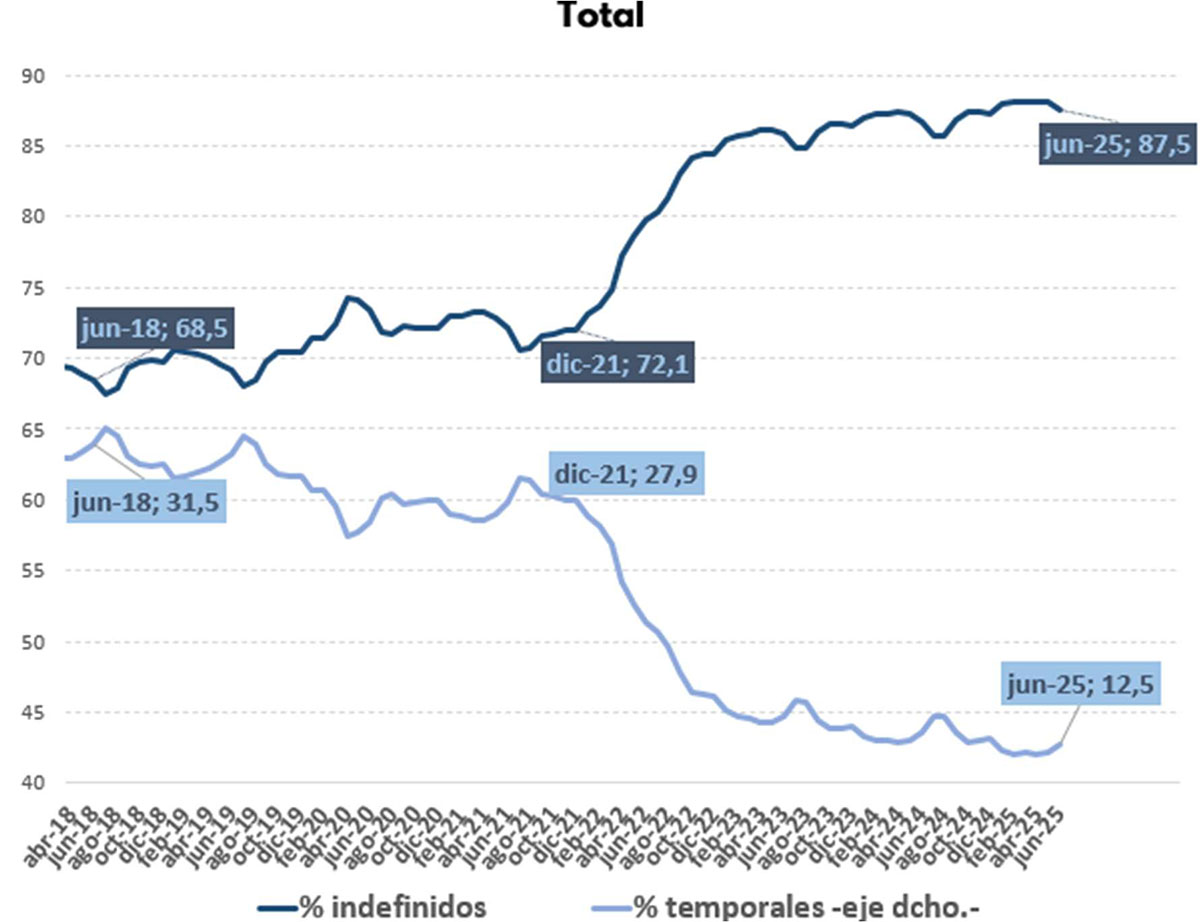
The weight of temporary workers stands at 12.5%, down from 31.5% in 2018. This improvement is even more remarkable among workers under 30 years of age; seven years ago they had a temporary employment rate of over 55.2%, whereas now it is below 20%.
Non official translation







